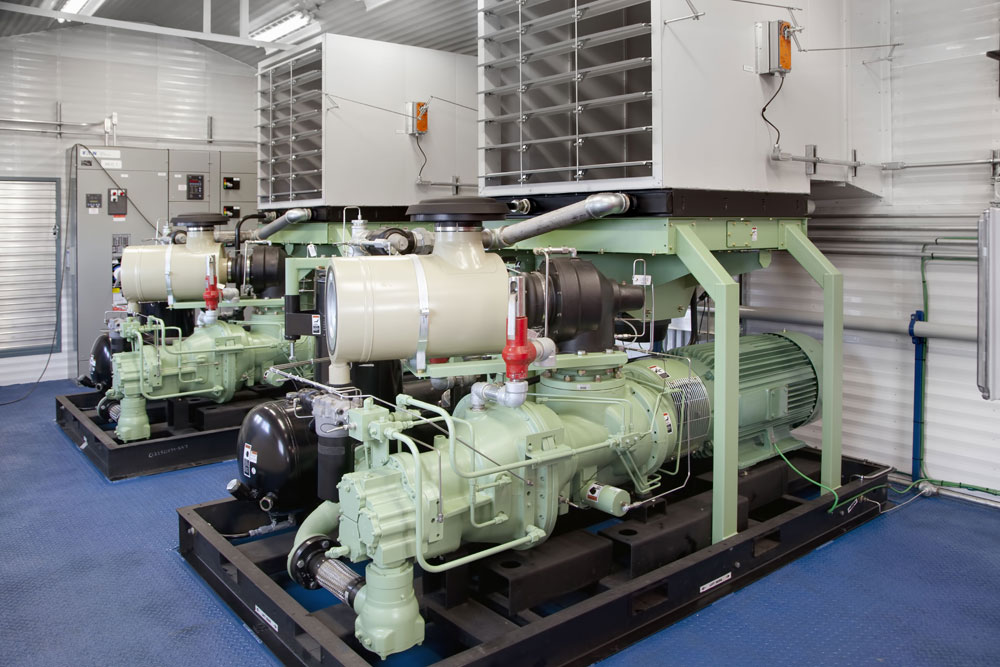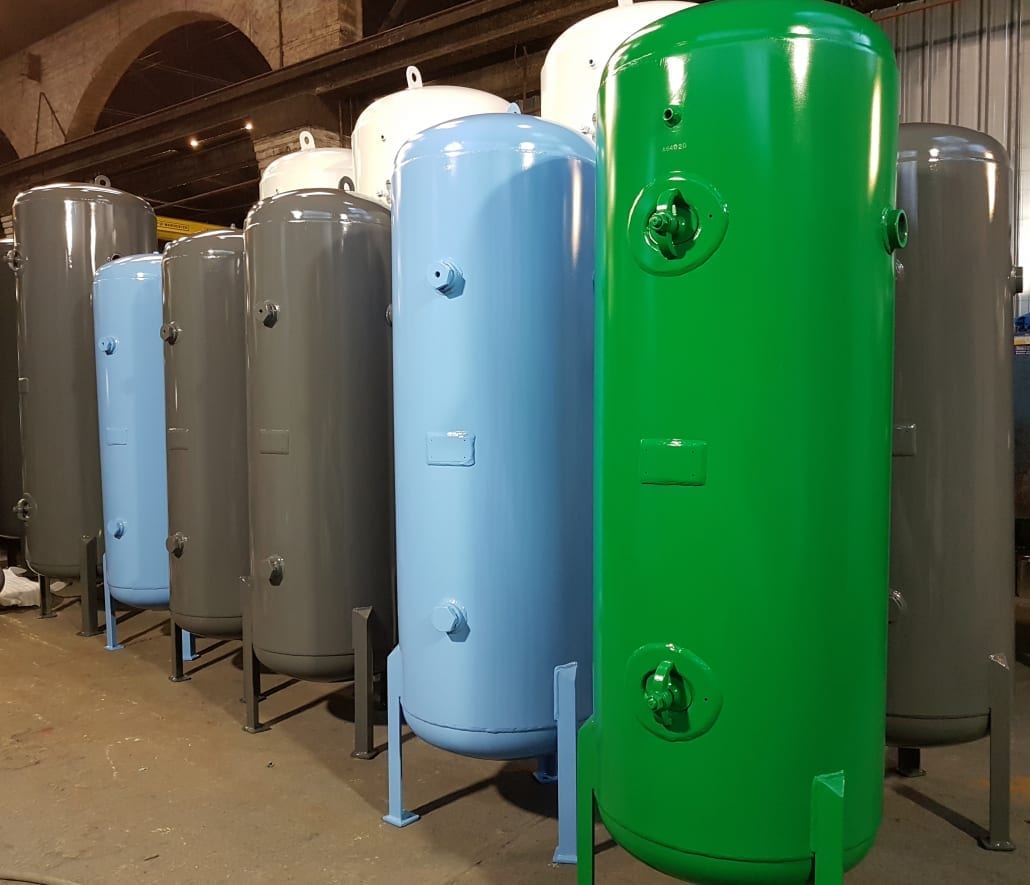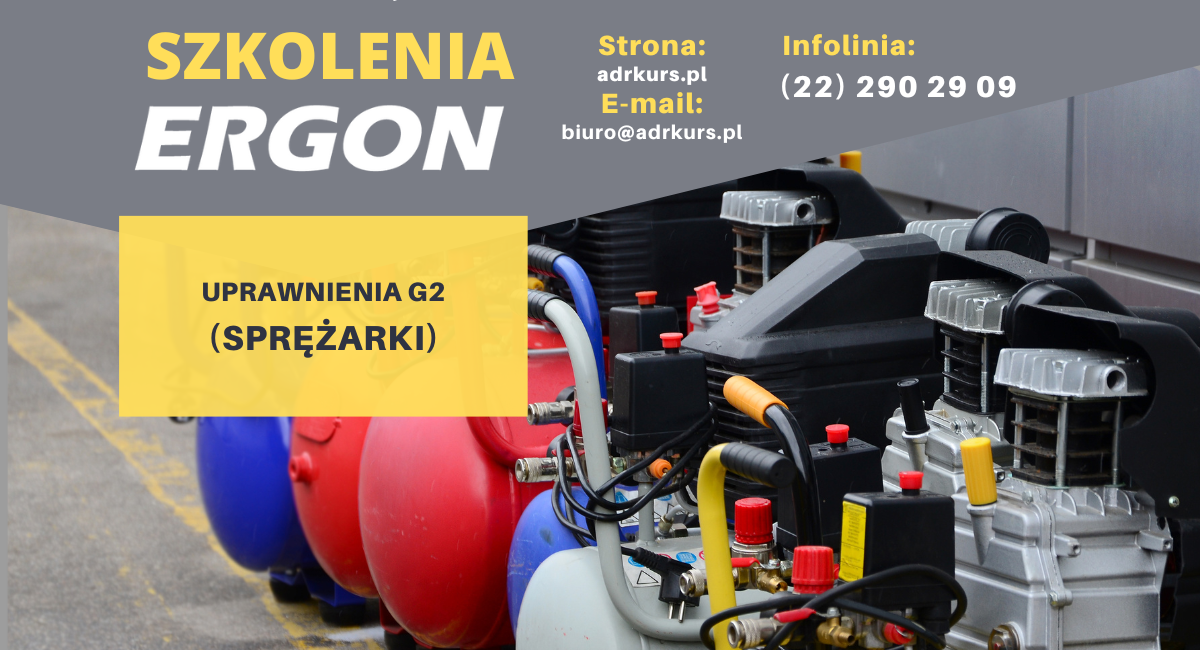UDT certificate course for compressor operators

Become a compressor operator
You are cordially invited to attend a professional course covering compressor operation. At our facilities, we focus on the quality of top service and a specialised approach so that you can easily obtain the professional qualification you desire. As part of the vocational education process, our aim is to provide selected classes. We guarantee theoretical and practical classes where you can acquire competences related to the supervision and operation of equipment.
Scope of training and examination
At the end of the training, participants have the opportunity to take a specialised exam before a qualification board appointed by the UDT. If a positive result is obtained, a certificate valid for 5 years will be issued, after which it must be renewed. Anyone who decides to take part in our classes will freely assimilate new knowledge and learn to operate equipment such as:

- compressors,
- suction cups,
- compressors,
- blowers,
- compressed air systems.
Who can take part?
The training is open to any adult with a minimum of primary education who has obtained a medical certificate of good health.
Price of training
We run courses at very satisfactory prices. To find out all costs and more interesting news, please feel free to give us a call.
When and where is the training taking place?
Classes are held at our branches throughout the country, but we also organise closed classes for closed groups with travel to the client. Courses are held according to the current information on our website. We also organise other training courses, including on mobile platformscranes, HDS cranes, forklifts or telescopic handlers.
Compressor characteristics
Compressors are power machines used to increase the pressure of air or gas, thus significantly improving their supply. They are used on a large scale in households, industry, technology and bulk material handling. Compressors used in industry are used, among other things, for painting, powering tools or pressurising systems or introducing air into car tyres. In addition, they are useful for pumping natural gas or loading internal combustion engines. It should also be remembered that the use of an industrial compressor requires specialist qualifications.
Division of compressors
Compressors can be hierarchised according to their different parameters. Given the type of machine design, we can divide them into flow compressors and positive displacement compressors. For example:

- rotary screw compressor - a positive-displacement device, with two rotors rotating in opposite directions, compression takes place; air circulation and lubricant substrate are independent of each other, therefore the machine is oil-free: no frequent maintenance is required,
- reciprocating compressor - commonly referred to as a positive displacement compressor; the device takes in air which, via a piston, minimises its volume and increases its pressure,
- centrifugal compressor - Otherwise known as a dynamic compressor; maximises pressure by increasing air pressure; excellent for conditions where it is necessary to operate with impeccably clear air; air circulation and lubrication substrates are independent of each other, consequently the machine does not need oil; no frequent impregnation is necessary.
Due to the interdependence of compression we distinguish between:
- compressors,
- fans,
- blowers.
With regard to mobility, we can distinguish between:
- stationary compressors,
- mobile compressors.
Taking into account the type of compressed medium, we distinguish between:
- air compressors,
- gas compressors.
Another aspect to consider is the number of stages. With regard to it, we divide compressors into:
- single-stage,
- two-stage.
The last but very important parameter is the type of drive. We can distinguish:
- hand-held compressors,
- electric compressors.
Compressor cooling system
The compressor imitates a lot of heat during its operation, so a refrigeration system proves indispensable in this respect. One of its most important components is the water pump. This prevents the machine from overheating and, as a consequence, even seizing up.
Wide range of compressor applications
The most common compressor used in pneumatics is the air compressor in the image of a compressor. The advantage of these compressors is that they provide a continuous flow of compressed air of uniform strength throughout the system. A suitable power supply is responsible for this, thanks to which the compressor is able to efficiently couple with one or more pressure accumulators. Compressors of this type can be found in production lines, vulcanisation stations, paint shops, railways or repair workshops.
Compressors that are suitable for domestic use can also be easily found in the shops. These are the smallest available compressors on the market. The most popular models are reciprocating compressors equipped with welded tanks of significantly small dimensions. They are ideal for easy transport. They are mainly used for inflating inflatable pools, pontoons, wheels or balls. They are also suitable for use as a rechargeable battery pack to power domestic pneumatic tools such as grinders, drills or screwdrivers. They are also used in repair work or for cleaning other machinery. They effortlessly blow dirt out of hard-to-reach places, Thanks to the use of compressed air, painting walls or fences will be significantly improved, which will improve the quality of the work.
We invite you to take a look at our offer.





































